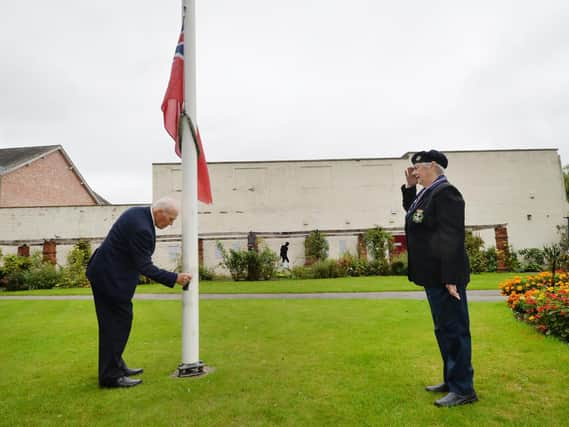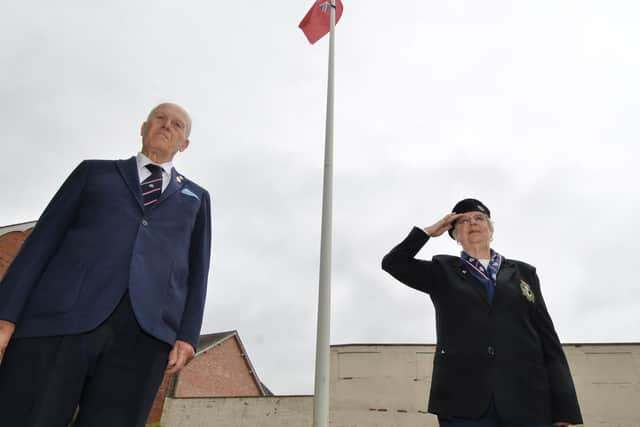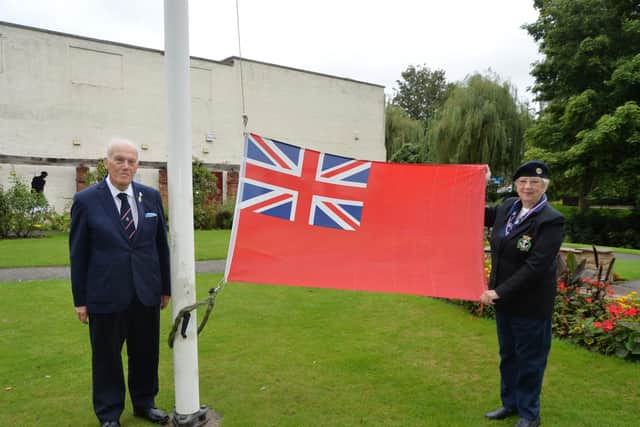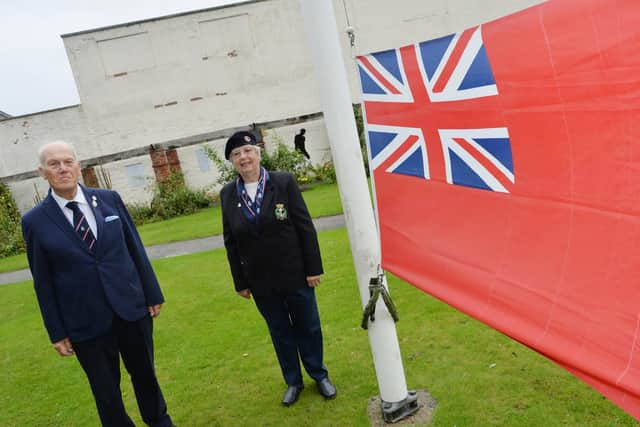Ceremony in Harborough recognises the sacrifices made by the Merchant Navy in the First and Second World Wars


A ceremony went ahead in Market Harborough to recognise the huge sacrifices made by brave Merchant Navy seamen in the First and Second World Wars.
The Rev John Morley, 76, chaplain to the town’s Royal Naval Association, and RNA secretary Pat Middleton hoisted the service’s Red Ensign flag on Merchant Navy Day on Thursday (September 3).
Advertisement
Hide AdAdvertisement
Hide AdThey raised the iconic emblem – affectionately nicknamed the Red Duster – in the Memorial Gardens in the town centre.


The striking red ensign, carrying the Union Flag in the top left quarter, also flew proudly on top of the district council’s Symington Building.
Also president of Market Harborough Royal British Legion, John said: “Merchant Navy Day has been held in the UK on September 3 since 2020 and we have staged it here in Market Harborough for the last eight or nine years.
“It’s absolutely vital that we all honour and remember the tens of thousands of courageous men who served and who were killed on our merchant ships in both world wars.
“They were all civilians and they were all heroes.”


Advertisement
Hide AdAdvertisement
Hide AdThe retired RAF Wing Commander added: “Our merchant navy seamen kept our island nation alive in both the Great War and the Second World War.
“We could not have survived without them.
“They risked their lives every day of the year to keep us supplied with vital fuel, food, ammunition, military goods and raw materials.”
Over 185,000 seamen, including 40,000 Indians, Chinese and other nationalities, served in the Merchant Navy during the Second World War.


A staggering 30,248 seamen lost their lives – a death rate proportionately higher than in any of our armed forces.
Advertisement
Hide AdAdvertisement
Hide Ad“Merchant seamen, for example, ferried critical supplies to the USSR on the terrible Arctic Convoys in the last war.
“They sailed up to ports like Archangel and Murmansk in the Arctic Circle through some of the worst, most deadly conditions anywhere in the world,” said John.
“The killer weather was bad enough without their ships being bombed and torpedoed by German warplanes and U-boats as well.
“So we will continue to salute and pay tribute to our Merchant Navy heroes of both world wars for many years to come.”